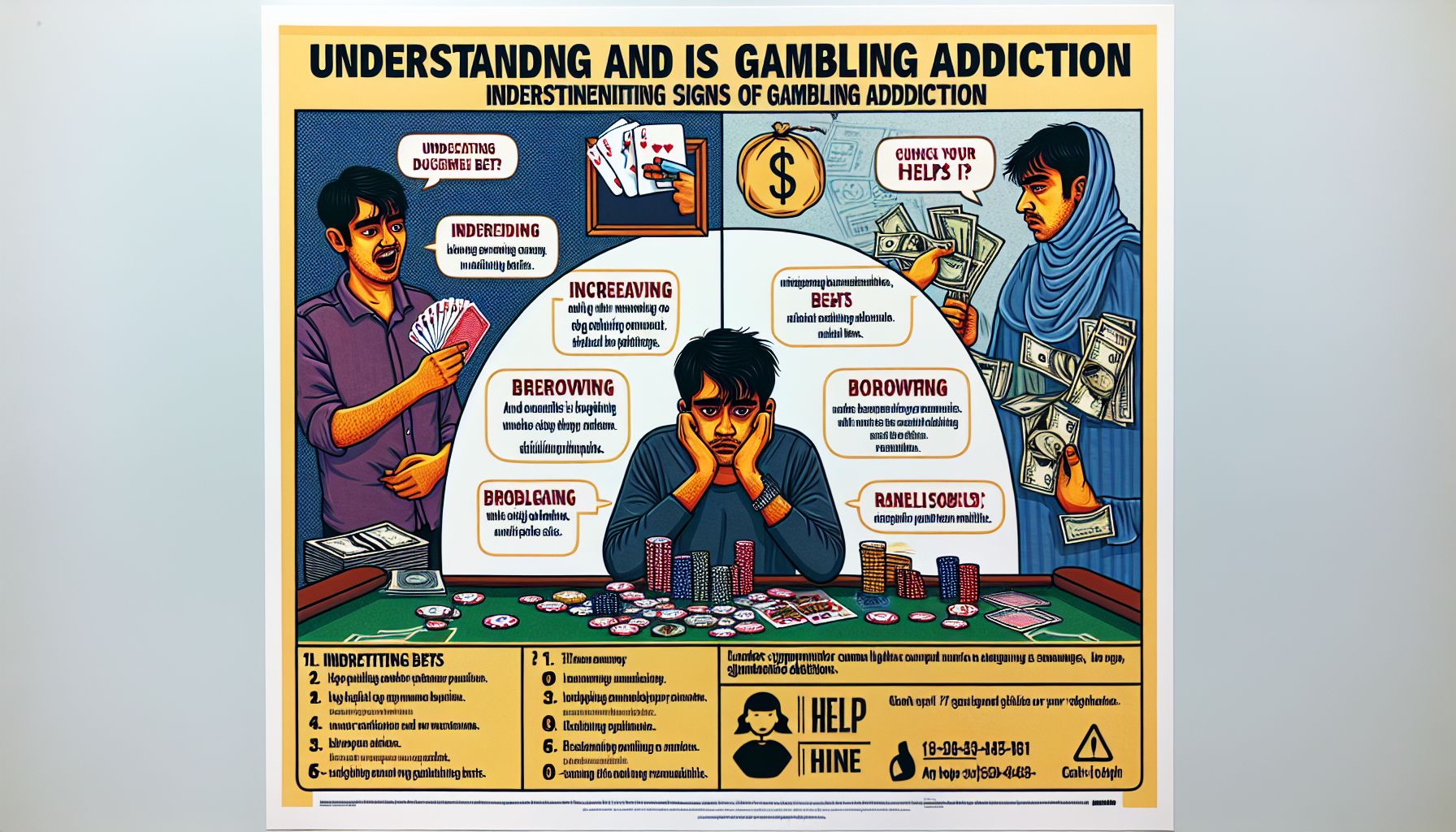
Gambling has been a form of entertainment for centuries, with people trying their luck at casinos, lotteries, and sports betting. While most individuals can participate in these activities without any negative consequences, for some, gambling can turn into a harmful and addictive behavior. Gambling addiction, also known as pathological gambling, is a serious mental health disorder that affects millions of people worldwide. It is estimated that around 2-3% of the general population struggle with gambling addiction, and this number is continuously rising with the advancement of technology and easy access to online gambling.
In this blog post, we will discuss everything you need to know about gambling addiction, including its signs, causes, and available treatments. Our goal is to educate individuals on how to recognize the signs of gambling addiction in themselves or their loved ones and encourage them to seek professional help before it’s too late.
Understanding Gambling Addiction
Before we delve into the signs and treatment of gambling addiction, it’s essential to understand what it is and how it differs from casual gambling. Gambling addiction is a progressive and chronic disorder characterized by compulsive gambling behavior and a loss of control over one’s gambling activities. It is often referred to as the “hidden disease” as the symptoms are not as evident as other types of addiction, such as alcohol or drug abuse. However, the consequences of gambling addiction can be just as severe, affecting an individual’s personal, financial, and emotional well-being.
The Diagnostic and Statistical Manual of Mental Disorders (DSM-5) categorizes gambling addiction as an impulse-control disorder, and it is also considered a form of behavioral addiction. This means that an individual with gambling addiction will continue to engage in gambling despite experiencing negative consequences, such as debt, strained relationships, and mental health issues. They may also experience intense urges to gamble, resulting in an inability to control or stop their gambling behavior.
Signs and Symptoms of Gambling Addiction
Gambling addiction can manifest in various ways, and its symptoms may differ from person to person. However, there are some common signs that can indicate a problem with gambling. It’s crucial to note that these signs don’t always mean that an individual has a gambling addiction, but they can be a cause for concern and should not be ignored. Here are the key signs and symptoms of gambling addiction:
Preoccupation with Gambling
One of the early signs of gambling addiction is an intense focus on gambling activities. An individual with gambling addiction may constantly think about gambling, whether they’re planning their next bet, recalling past gambling experiences, or strategizing their game of choice. This preoccupation can be quite consuming, causing a significant impact on their daily life.
Increased Risk-Taking Behavior
Gambling addicts often take significant risks that aren’t typical for casual gamblers. They may increase their bets to chase losses or prolong their gambling sessions even when they should stop. This behavior can lead to significant financial problems and affect other aspects of their life, such as their relationships, work, and mental health.
Failed Attempts to Stop or Control Gambling
Individuals with gambling addiction may recognize that they have a problem but struggle to control their gambling behavior. They may have made numerous attempts to stop or cut back on their gambling activities but fail to do so due to intense urges or cravings for gambling. This inability to control their behavior can be a prominent sign of gambling addiction.
Withdrawal Symptoms
Just like with substance abuse, individuals with gambling addiction may experience withdrawal symptoms when they try to stop or reduce their gambling activities. These symptoms may include irritability, restlessness, anxiety, and insomnia, which can lead to individuals going back to gambling to alleviate these uncomfortable feelings.
Lying and Concealing Gambling Behaviors
Due to the stigma associated with gambling addiction, individuals may hide or lie about their gambling activities to their friends and family. They may also make excuses for their behavior to avoid confrontation and continue their addiction without being identified. This behavior is often a way for them to justify and rationalize their gambling.
Financial Problems
One of the most significant indicators of gambling addiction is financial problems. Individuals with gambling addiction may have significant debts, unpaid bills, and strained financial situations due to their gambling activities. They may also resort to borrowing or stealing money to fund their addiction, leading to further financial issues.
Neglecting Responsibilities and Relationships
Individuals with gambling addiction may start neglecting their responsibilities, such as work, family, and personal commitments, to concentrate on gambling. They may also distance themselves from their loved ones and become isolated, leading to strained relationships and social withdrawal.
Causes of Gambling Addiction
The exact cause of gambling addiction is still unknown, but research suggests that it is a combination of biological, psychological, and environmental factors. Some individuals may have a predisposition to develop gambling addiction due to certain genetic or neurological factors inherited from their family. Others may have underlying mental health issues, such as depression, anxiety, or ADHD, which can contribute to the development of gambling addiction.
Environmental factors, such as exposure to gambling at a young age, peer pressure, and societal norms that glorify gambling, can also play a role in the development of gambling addiction. Furthermore, individuals with a history of trauma, abuse, or addictive behaviors are more likely to develop gambling addiction.
Seeking Help for Gambling Addiction
It’s crucial to understand that gambling addiction is a treatable disorder, and individuals can recover with proper treatment and support. Like other forms of addiction, there is no one-size-fits-all approach to treating gambling addiction. However, the most effective treatment approaches for gambling addiction include therapy, support groups, and medication.
Therapy
Cognitive-behavioral therapy (CBT) is considered the gold standard for treating gambling addiction. This therapy helps individuals identify and change their negative thoughts and behaviors that contribute to their gambling addiction. It also teaches them coping strategies to deal with cravings and urges to gamble. Other therapies, such as motivational interviewing and family therapy, can also be useful in treating gambling addiction, depending on the individual’s specific needs.
Support Groups
Support groups, such as Gamblers Anonymous, are based on the concept of the 12-step program, similar to Alcoholics Anonymous. These groups provide a safe and supportive environment for individuals with gambling addiction to share their experiences and receive support from others who have been through similar struggles. They also offer accountability and guidance towards a life free from gambling addiction.
Medication
In some cases, medication may be prescribed to individuals with gambling addiction to help manage their symptoms or any underlying mental health issues. Medications such as antidepressants and mood stabilizers can help with co-occurring conditions, such as depression and anxiety, which are often associated with gambling addiction. However, medication should always be used in conjunction with therapy and not as a substitute.
Conclusion
The first step to overcoming gambling addiction is to recognize and acknowledge the problem. If you or a loved one is struggling with gambling addiction, seek professional help immediately. Don’t let shame or denial prevent you from getting the support you need to overcome your addiction. With the right treatment and support, it is possible to overcome gambling addiction and lead a healthy and fulfilling life free from the grip of this destructive disorder.






